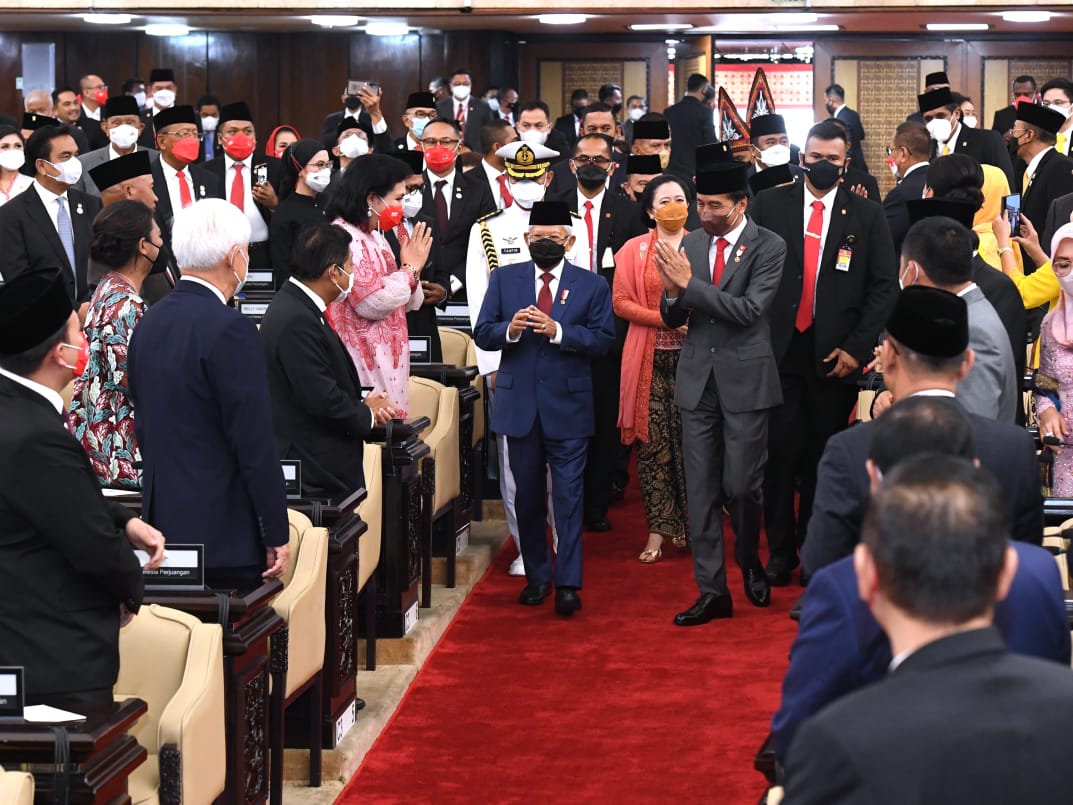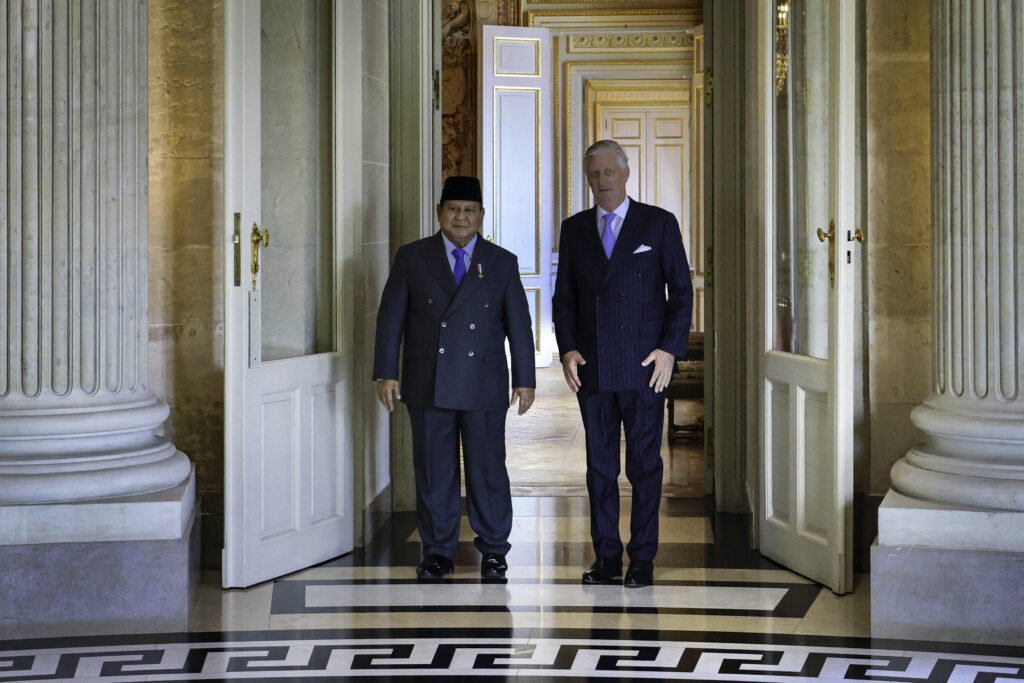President Jokowi Delivers Details of 2023 State Budget

President Jokowi, Vice President Ma’ruf Amin, and Speaker of the House of Representatives of the Republic of Indonesia Puan Maharani arrived at the Parliamentary Complex in Jakarta, Tuesday (08/16).(Photo: Bureau of Press, Media, and Information of Presidential Secretariat)
President Joko “Jokowi” Widodo said that the state budget in the 2023 State Budget (RAPBN) is estimated at Rp3,041.7 trillion.
It is stated by the President in the Presentation of the Government Statement on the Bill on the State Budget for the 2023 Fiscal Year and Its Financial Note, in the Parliamentary Complex, Senayan area, Jakarta, on Tuesday (08/16) afternoon.
“State Expenditure in the 2023 State Budget bill is planned at Rp3,041.7 trillion, covering the Central Government’s expenditure at Rp2,230.0 trillion and transfer to the regions at Rp811.7 trillion,” the President said.
The President thoroughly explained that the Government has allocated a health budget of Rp169.8 trillion or 5.6 percent of the state expenditure. The budget will be directed at handling the pandemic, reforming the health system, accelerating stunting reduction, and continuing the National Health Insurance (JKN) program.
The Government allocated a social protection budget of Rp479.1 trillion to help the poor and vulnerable people meet their basic needs and is expected to be able to cut the chain of poverty in the long term.
“In line with this, social protection program reforms are directed at improving the recipient database by developing the Social Economic Registration (Regsosek), improving lifelong and adaptive social protection, providing on-target subsidies based on beneficiary targets as well as accelerating extreme poverty eradication,” the President said.
Furthermore, to increase the productivity and quality of human resources, the Government has prepared an education budget of Rp608.3 trillion.
“We must be able to capitalize on our demographic bonus and be ready to face technology disruption. We must prepare productive, innovative, and globally competitive human capital, while continuing to practice the values of Pancasila and noble deeds, as well as preserving our national identity,” said the President.
The Head of State also emphasized five things related to efforts to improve the quality of Indonesian human resources. First, enhancement of education access in all levels of education. Second, improvement in the quality of education support infrastructure and facilities, especially in the outermost, frontier, and disadvantaged (3T) regions. Third, strengthening of link and match with job markets. Fourth, equal distribution of education quality. Fifth, upgrading of early childhood education quality services.
“In addition, the Government is also committed to boosting investment in the education sector, among others by promoting scholarship program expansion, culture advancement, the strengthening of world-class universities, and development of research and innovation,” he said.
Furthermore, infrastructure development is budgeted at Rp392.0 trillion to improve the provision of basic services, to improve productivity through connectivity and mobility infrastructure, to provide affordable, reliable, and environmentally friendly energy and food infrastructure, as well as to equally distribute infrastructure and access to information and communication technology.
“To sustain the target of infrastructure development acceleration, strategies to integrate budget and funding scheme mix will be taken through synergy between investment financing and expenditure of ministries/institutions as well as an increasing involvement of the private sector. The PPP scheme becomes the financing model that continues to be offered,” he said.
Regarding the transfer budget to the regions, the Government has allocated a budget of Rp811.7 trillion.
“The transfer policy to the regions is directed at (1) enhancing synergy of fiscal policies between the Central Government and regional governments, as well as harmonizing central and regional expenditures; (2) improving quality of transfer to the regions management in line with the implementation of Law Number 1 of 2022 on Financial Relations between the Central Government and regional governments; (3) boosting the use of transfers to the regions to support priority sectors; (4) increasing the capacity of regional taxation while maintaining investment climate, ease of doing business, and public welfare; and (5) optimizing the use of regional expenditure to improve access to and quality of public services,” he concluded. (FID/DND/MAY/UN)(AW/LW)








